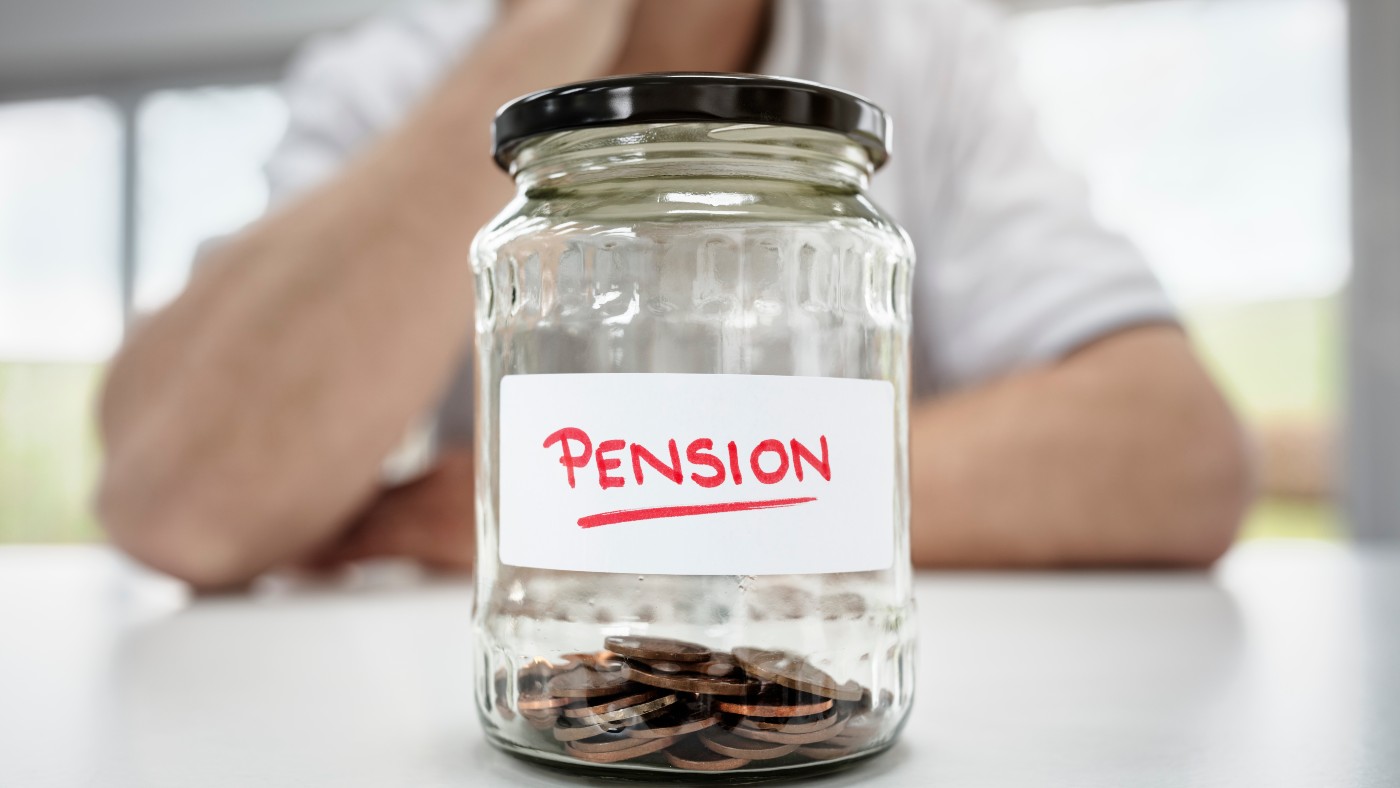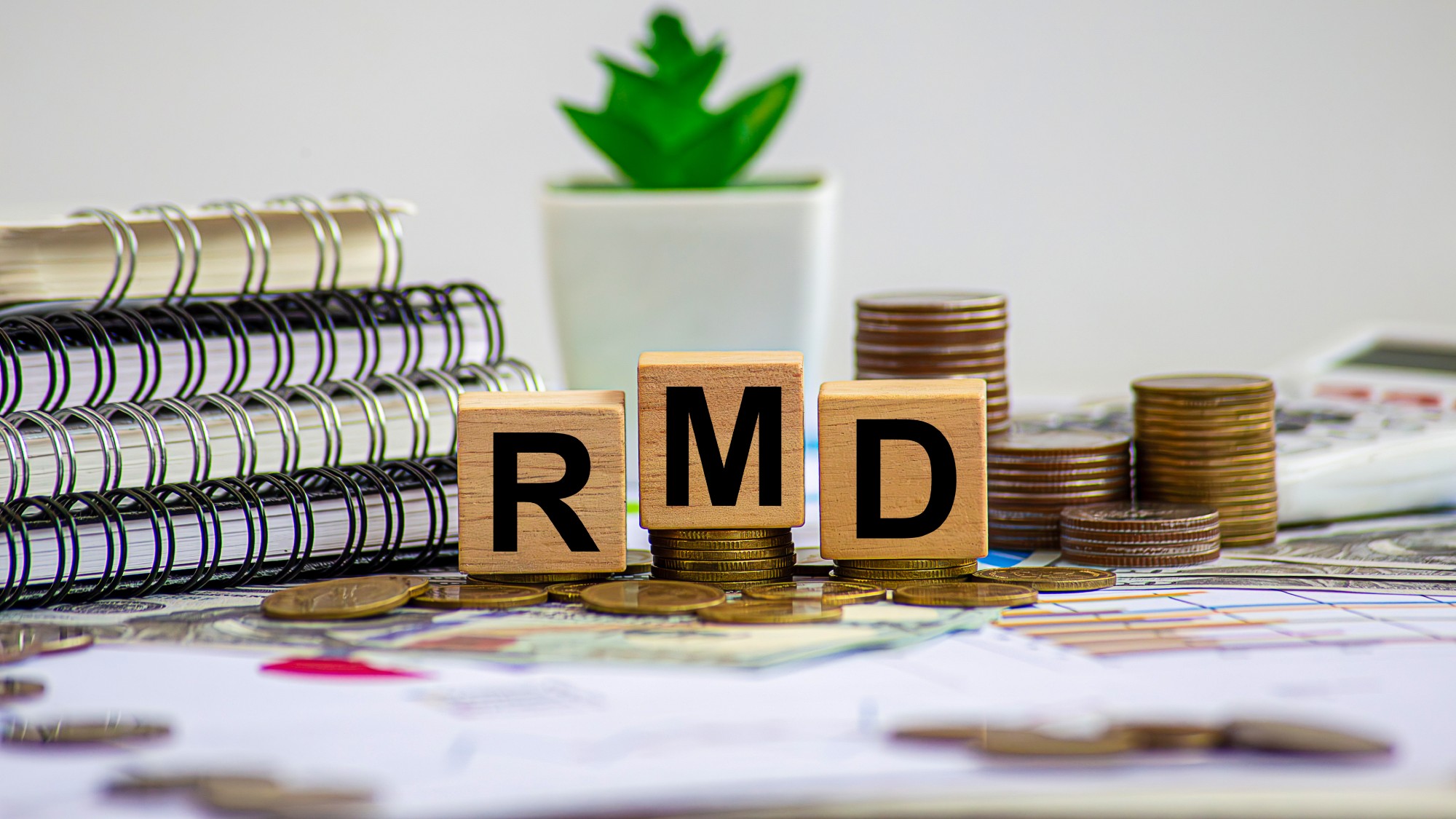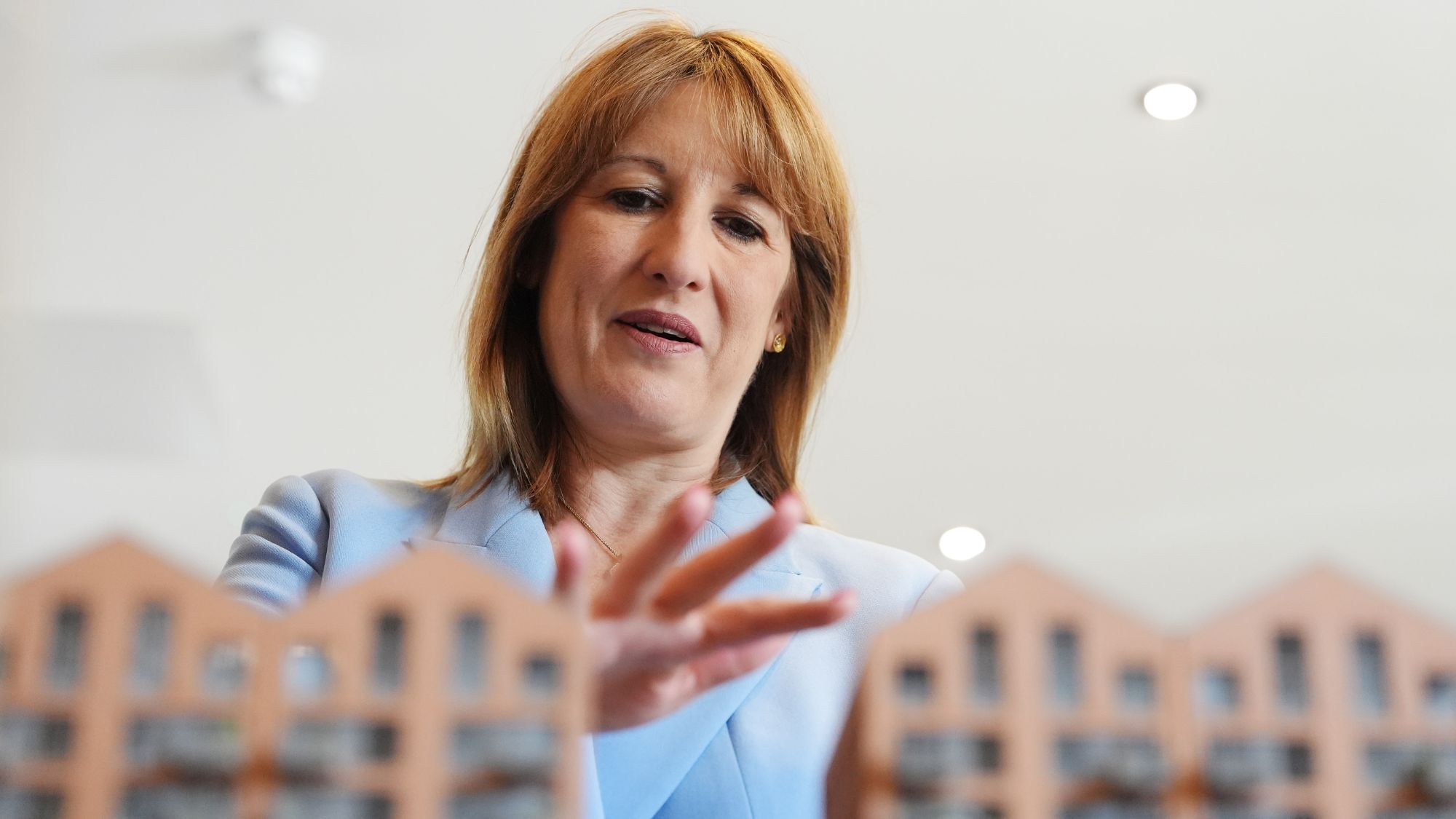How your pension is taxed and ways to reduce your bill
A pension helps save for your retirement but can also add to your tax bill

A free daily email with the biggest news stories of the day – and the best features from TheWeek.com
You are now subscribed
Your newsletter sign-up was successful
When you make a purchase through links on our site, we may earn a commission
There are plenty of tax benefits to investing in a pension to fund your retirement, but there are calls to scale back some of the perks of this long-term savings product, especially for higher earners.
A pension is a financial product that aims to provide “security when you’re older”, said Money Helper.
The Week
Escape your echo chamber. Get the facts behind the news, plus analysis from multiple perspectives.

Sign up for The Week's Free Newsletters
From our morning news briefing to a weekly Good News Newsletter, get the best of The Week delivered directly to your inbox.
From our morning news briefing to a weekly Good News Newsletter, get the best of The Week delivered directly to your inbox.
Similar to an Isa, there are no tax charges on investment growth but you can only access it, currently from age 55, to provide “an income in later life, when you want to work less or retire”, the financial guidance website said.
The government also set out plans in its spring Budget in March 2023 to change the rules around how much can be put into a pension.
Supporting pension saving through the tax system is expensive for the government, though, and the Institute for Fiscal Studies (IFS) is the latest to call for reforms, claiming higher earners benefit from “overly generous subsidies”.
Pension tax relief
When you save into a pension, said Which?, the government likes to give you a bonus, known as tax relief, “as a way of rewarding you for saving for your future”.
A free daily email with the biggest news stories of the day – and the best features from TheWeek.com
Income tax is usually taken “at source” each month from an employee’s pay, said Unbiased, but pension tax relief effectively repays this money to you on every contribution you make depending on your personal income tax rate.
The basic rate relief of 20% is automatically added to your pension contributions but “things are a little more complex” if you are a 40% or 45% rate taxpayer as you need to claim back the extra 20% or 25% on a self-assessment tax return.
If you are a basic-rate taxpayer, said Which?, and were to contribute £100 from your salary into your pension, “it would actually only cost you £80” as the government adds an extra £20 on top – “what it would have taken in tax from £100 of your salary”. Similarly, higher and additional-rate taxpayers only need to pay £60 and £55 respectively to get the same £100 of pension savings.
Funding pension tax relief is expensive for the government, however, leading to rumours that the Treasury may reduce it for high earners. The latest HMRC data shows the cost of pension tax relief in 2022/23 was £27bn.
For years there’s been speculation that the government might be tempted to trim tax relief to cut costs, Hargreaves Lansdown analyst Helen Morrissey told FT Adviser – “so far, it’s been resisted but with budgets under pressure it may prove too tempting a prospect to leave”, she said.
How much can you put into your pension?
Currently, you can put up to £40,000 per year into a pension, and there is a lifetime limit of £1.073m. Any contributions above the limit are charged a tax rate of 55%.
But Chancellor Jeremy Hunt said in his spring Budget that he recognised this charge was making senior NHS clinicians in particular leave the profession “just when they are needed most”.
Growing numbers of older people in generous defined-benefit pension schemes, said The Guardian, were “bumping up against” the lifetime allowance, or were worried they soon would be, which could have deterred people against working longer.
To combat this and encourage people to stay in work if they can, from the new tax year in April the annual limit will rise to £60,000 and the lifetime allowance limit has been scrapped.
The chancellor went “much further than pre-Budget leaks that indicated he might raise the threshold to £1.8m”, said the Financial Times.
There is a catch, though, as the maximum tax-free cash sum that can be taken from a pension will remain limited to 25% of the current £1.073m lifetime allowance, the newspaper added, a maximum of £268,275.
The IFS has argued in the past that the tax-free lump sum only benefits those with larger pots and has “no value at all to those who have the lowest incomes in retirement”.
“Hunt also tackled another quirk in the system,” said The Guardian, which could put some older people off going back to work.
At the moment, someone aged 55 or over who has already taken money out of their defined-contribution pension pot reduces how much they can subsequently pay in per year to just £4,000, known as the money purchase annual allowance. “This particularly impacts people who have taken early retirement,” said The Guardian, “but perhaps because of the cost of living crisis would now like to start doing some work again, and want to be able to take advantage of the opportunity to keep saving into a pension.” This will now rise to £10,000 in April.
How to reduce your pension tax bill
There may no longer be penalties for contributing too much to your pension, but it is a different story once you come to accessing your pot.
Once you retire, you have two main options: use a drawdown product that keeps your pension invested while you can take regular payments, or use the pot to buy an annuity product that pays a fixed income for the rest of your life.
Whichever you choose, your pension payments will be added to your overall income so the amount of tax you pay will depend on your total earnings in the year, beyond the personal allowance threshold, which is £12,570 for the 2022/23 tax year.
The best way to avoid paying too much tax on your pension income is to take out only what you need.
Using a drawdown scheme can help with this, said The Private Office, a firm of independent financial advisers. You can decide how much you withdraw based on your current budget and expenses, “meaning you can opt to keep it below a certain tax range in a given year”. This won’t work with an annuity as “the income cannot be varied at will”.
You should take as much income as you need to live comfortably, said Unbiased, but unlike taking a salary “there’s less advantage to having more income than you need and putting it into savings”.
In most cases, the financial website said, “it’s best to leave the money inside your pension until you are sure you are going to spend it”.
Marc Shoffman is an award-winning freelance journalist, specialising in business, property and personal finance. He has a master’s degree in financial journalism from City University and has previously written for FTAdviser, ThisIsMoney, The Mail on Sunday and MoneyWeek.
Marc Shoffman is an NCTJ-qualified award-winning freelance journalist, specialising in business, property and personal finance. He has a BA in multimedia journalism from Bournemouth University and a master’s in financial journalism from City University, London. His career began at FT Business trade publication Financial Adviser, during the 2008 banking crash. In 2013, he moved to MailOnline’s personal finance section This is Money, where he covered topics ranging from mortgages and pensions to investments and even a bit of Bitcoin. Since going freelance in 2016, his work has appeared in MoneyWeek, The Times, The Mail on Sunday and on the i news site.
-
 Political cartoons for February 17
Political cartoons for February 17Cartoons Tuesday’s political cartoons include a refreshing spritz of Pam, winter events, and more
-
 Alexei Navalny and Russia’s history of poisonings
Alexei Navalny and Russia’s history of poisoningsThe Explainer ‘Precise’ and ‘deniable’, the Kremlin’s use of poison to silence critics has become a ’geopolitical signature flourish’
-
 Are Hollywood ‘showmances’ losing their shine?
Are Hollywood ‘showmances’ losing their shine?In The Spotlight Teasing real-life romance between movie leads is an old Tinseltown publicity trick but modern audiences may have had enough
-
 What to know before filing your own taxes for the first time
What to know before filing your own taxes for the first timethe explainer Tackle this financial milestone with confidence
-
 Six ways to boost your finances in 2026
Six ways to boost your finances in 2026The Explainer It’s not too late to make a new year’s resolution to finally get organised money-wise
-
 3 required minimum distribution tax mistakes to avoid
3 required minimum distribution tax mistakes to avoidThe Explainer Missteps in making withdrawals from tax-advantaged retirement accounts can cost you big
-
 Is duty-free shopping worth it?
Is duty-free shopping worth it?the explainer How to determine whether you are actually getting a good deal
-
 What the 2025 Autumn Budget could mean for your wallet
What the 2025 Autumn Budget could mean for your walletThe Explainer Chancellor Rachel Reeves will reveal her latest plan to balance the nation’s finances in November
-
 What taxes do you pay on a home sale?
What taxes do you pay on a home sale?The Explainer Some people — though not many — will need to pay capital gains taxes upon selling their home
-
 Clean energy tax credits are going away. Here's how to get them before it's too late.
Clean energy tax credits are going away. Here's how to get them before it's too late.The Explainer Trump's recently passed megabill promises the early demise of clean energy tax credits
-
 How will the new tax deductions on auto loans work?
How will the new tax deductions on auto loans work?the explainer Trump's One Big Beautiful Bill Act introduced a tax deduction on auto loan interest — but eligibility for the tax break is limited